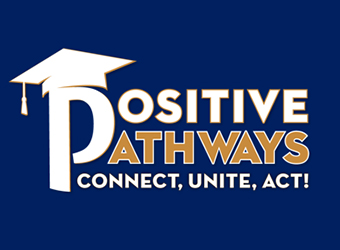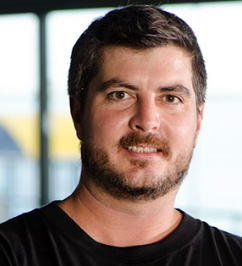 Having entered Florida’s foster care system at the age of 10, Dominique Rosario hopes to eventually work with young girls who grew up in similarly challenging circumstances.
Having entered Florida’s foster care system at the age of 10, Dominique Rosario hopes to eventually work with young girls who grew up in similarly challenging circumstances.
“My goal is to start doing therapy or some kind of work with girls in the DJJ (Department of Juvenile Justice) system,” Rosario said. “I want to help in any way I can.”
Rosario, 22, recently earned a bachelor’s degree in interdisciplinary social sciences with a concentration in criminology and sociology from the University of South Florida, but she was far from a dedicated student throughout her time at Miami Coral Park High School.
“I could not have cared less about college. There was an Algebra II class where I had 67 absences,” said Rosario, who eventually completed the necessary coursework at night and during the summer. “It was fear of homelessness that made me care about college.”
She credits members of the Positive Pathways network, which aims to improve postsecondary outcomes and career transitions for foster care youth and alumni, for helping her get to where she is today.
“I don’t usually need money-based resources, so I come to them for advice on classes, how to get my foot in the door for job interviews or how to pick a therapist. They really help give me the confidence to do these things,” said Rosario, who is currently working as an art therapy teacher at New Life Village, where she supports families raising adopted, kinship and foster children. “Without them, I wouldn’t have the job I have now and I don’t think I would be where I am now.”
Making College Affordable for Foster Youth in Florida
Each year, approximately 1,000 youth in Florida turn 18 and age out of foster care. Many of those interested in pursuing education beyond high school are not aware of the supports the state has in place to help them.
Florida is one of 28 states that offers a tuition and fee exemption for former foster youth who meet certain eligibility requirements. The waiver is administered by the Florida Department of Children and Families (DCF), which also provides a monthly $1,256 stipend for living expenses to students enrolled in a postsecondary or vocational school up to the age of 23 through its Postsecondary Education Services Support (PESS) program.
“Florida truly is an innovator in terms of the support they’ve provided and continue to provide these young people,” said Dr. Steve J. Rios, senior director for the Positive Pathways Program. For instance, foster youth in Florida may use the DCF tuition and fee waiver until they turn 28, whereas the waiver expires sooner for students in other states.
Postsecondary Attainment Grows for Florida Foster Youth
The number of former foster youth like Rosario who have enrolled in and graduated from college is on the rise.
According to a brief released by Helios Education Foundation and Educate Tomorrow, about 1,500 students in Florida’s public colleges, universities and technical schools utilized the tuition and fee exemption for former foster youth in 2008. That figure more than tripled in the ensuing decade, swelling to 6,372 students during the 2019-2020 school year. While the number of former foster youth who graduated from those institutions more than doubled — from 135 students in 2013 to 273 students in 2018 — Positive Pathways is trying to further bolster those figures by helping more students obtain the support they need to succeed in college.
Get to Know: Positive Pathways
Positive Pathways, formerly known as Florida Reach, is a network of individuals with the goal of increasing the number of campus-based support programs, according to Rios. Florida statutes mandate that Florida College System and State University System institutions provide “campus coaching positions” for current and former foster youth. All campuses have a designated foster care liaison but the level of direct support provided at any given institution varies.
Towards the end of 2016, DCF established a contract to create and fund Positive Pathways, which supports the foster care liaisons on each campus through technical assistance, professional development, connections to funding for postsecondary students, and more.
The Positive Pathways program — which Rios estimates has about 200 professionals in its network — is administered by Educate Tomorrow, a Miami-based statewide program with a long history of helping former foster youth graduate from college and succeed in life. Positive Pathways offers professional development to those serving foster youth on college campuses and to learn from practices that are leading to student success.
“The purpose of Positive Pathways is to have a united, evidence-based response to supporting youth from foster care and making sure they have dedicated programs on college campuses,” said Brett McNaught, CEO of Educate Tomorrow. That mission also includes making students, their families, and independent living professionals aware of existing resources. “What we realized years ago is that free college tuition existed, but there was a severe lack of knowledge about it, especially in disseminating the information to students and caregivers.”
Educate Tomorrow, which has provided hundreds of thousands of dollars in funding to complement the DCF contract that funds Positive Pathways, recently partnered with Florida’s Guardian ad Litem Program to help increase awareness about the tuition and fee exemption among volunteers supporting former foster youth in Florida, who can then pass along that knowledge to students.
McNaught said the creation of Positive Pathways has greatly expanded supports for foster care youth throughout the state.
“Prior to Positive Pathways, we didn’t have all these relationships on different college campuses…we didn’t have trusted partners that we could hand our students off to,” McNaught said.
One of those trusted partners is Dr. Althea Blake, program coordinator for St. Petersburg College’s RISE program. RISE (Road to Independence, Success, and Excellence) seeks to increase the graduation rate for students using the DCF tuition and fee exemption, as well as the Homeless Fee Exemption.
Although RISE was established in mid-2020, the program is currently accepting applications for its first official student cohort in Fall 2021.
“The goal is to enhance their overall academic experience,” said Blake, who will provide one-on-one success coaching through the program. “We plan on doing that through mentorship, advocacy, and a comprehensive series of workshops.”
The workshops scheduled for February through April will take place on Microsoft Teams due to COVID-19.
Supporting students during a pandemic
McNaught said students have been even more reliant on the services provided through Positive Pathways and Educate Tomorrow during the pandemic.
“We would’ve assumed programs like this might take a backseat, but it’s actually been the opposite response,” he said. “There’s been a recognition that there needs to be more dedication to vulnerable student populations that are suffering at this time.”
Positive Pathways and Educate Tomorrow partnered with AOK Scholars to survey former foster youth in college in September 2020, then again in February 2021. The percentage of students who said that their schooling is an urgent or high priority was 96% and 97%, respectively, while the proportion of students who said staying healthy physically or mentally is an urgent or high priority increased from 83% to 93%.
Rios and McNaught said Positive Pathways and Educate Tomorrow have already developed several supports for students during the pandemic, including virtual information and support calls that take place more than once a week to help keep students engaged, and a tutoring service to provide academic support.
“Many students were more willing to move to a virtual platform because they’d been quarantining and feeling isolated,” McNaught said. “They especially gravitate to the group sessions and even linger after the session is over to share their feelings and be a part of something.”
RELATED ARTICLES:
Educate Tomorrow shares tips for supporting foster students during COVID-19
Key takeaways from “Improving Postsecondary Education Success for Former Foster Youth”
Summit Speaker Series — Clear Answers to Perplexing Questions About Students Who Grew Up in Foster Care



